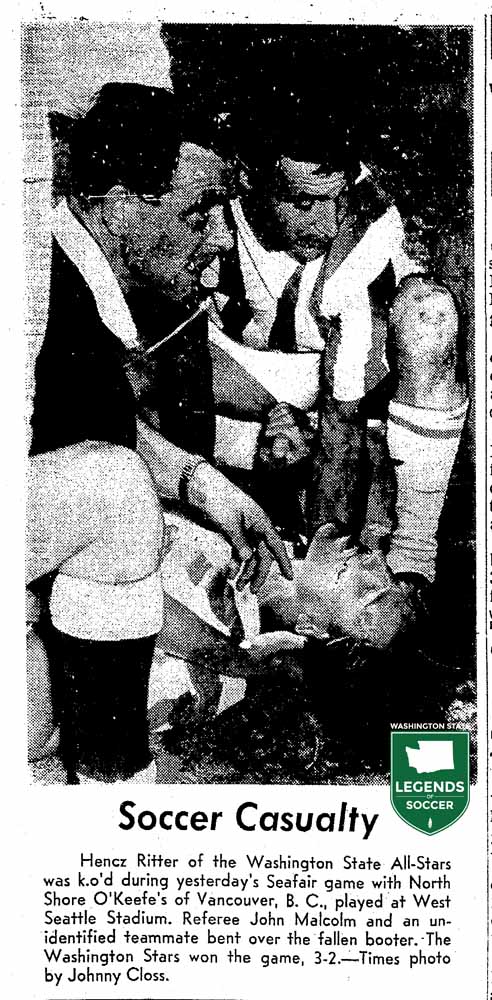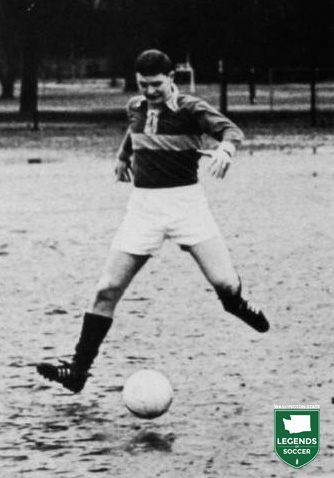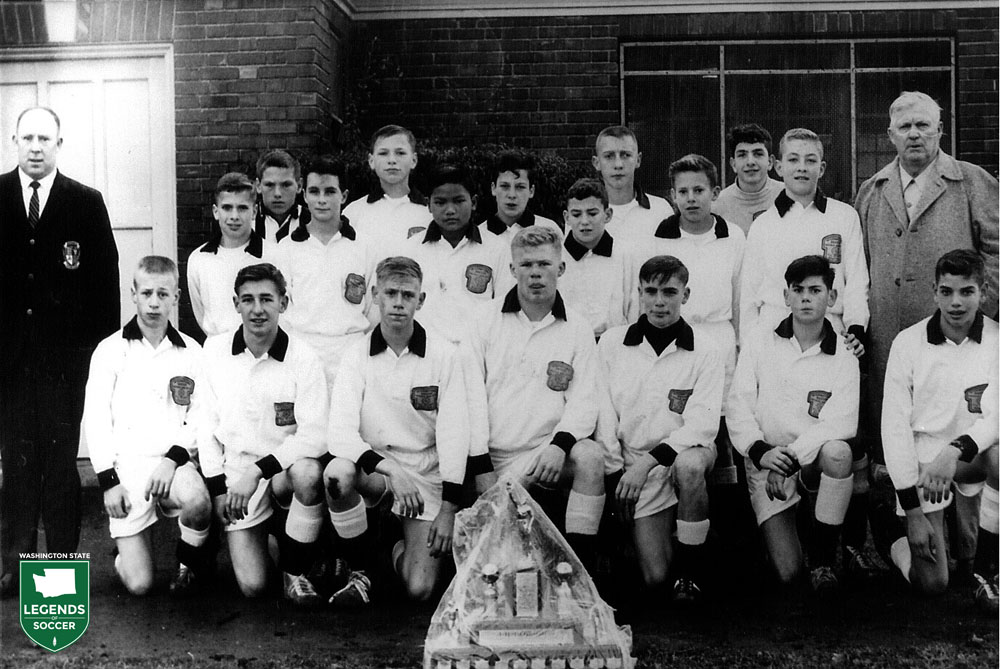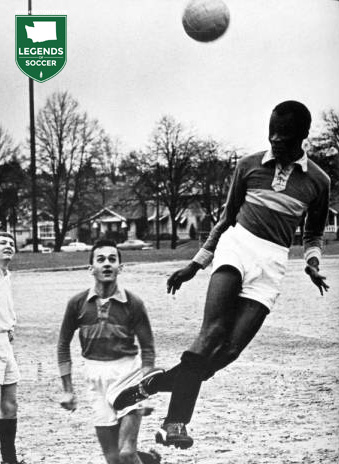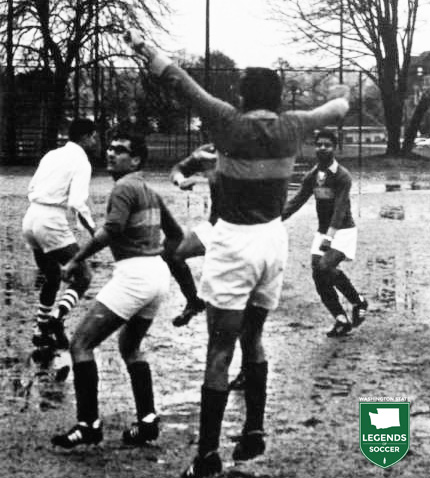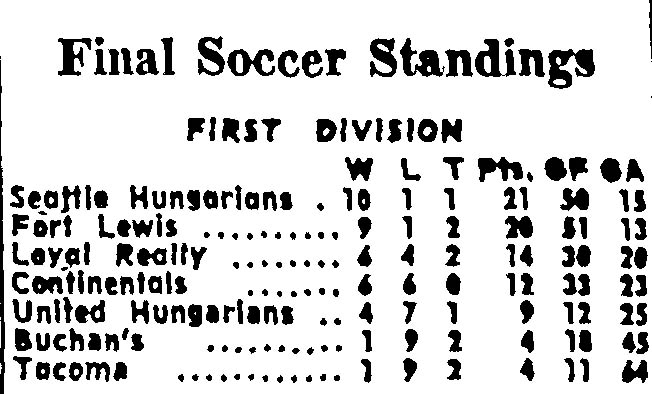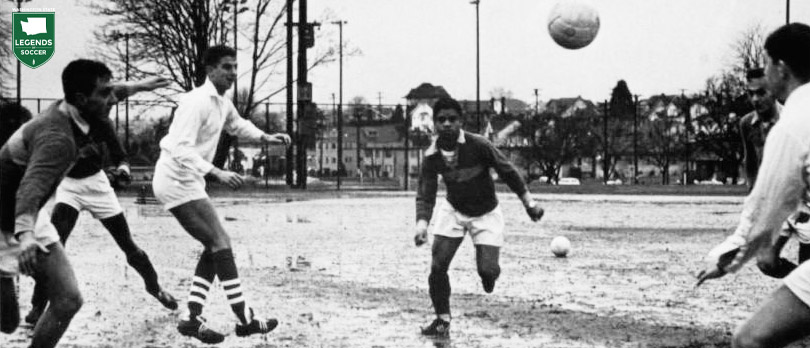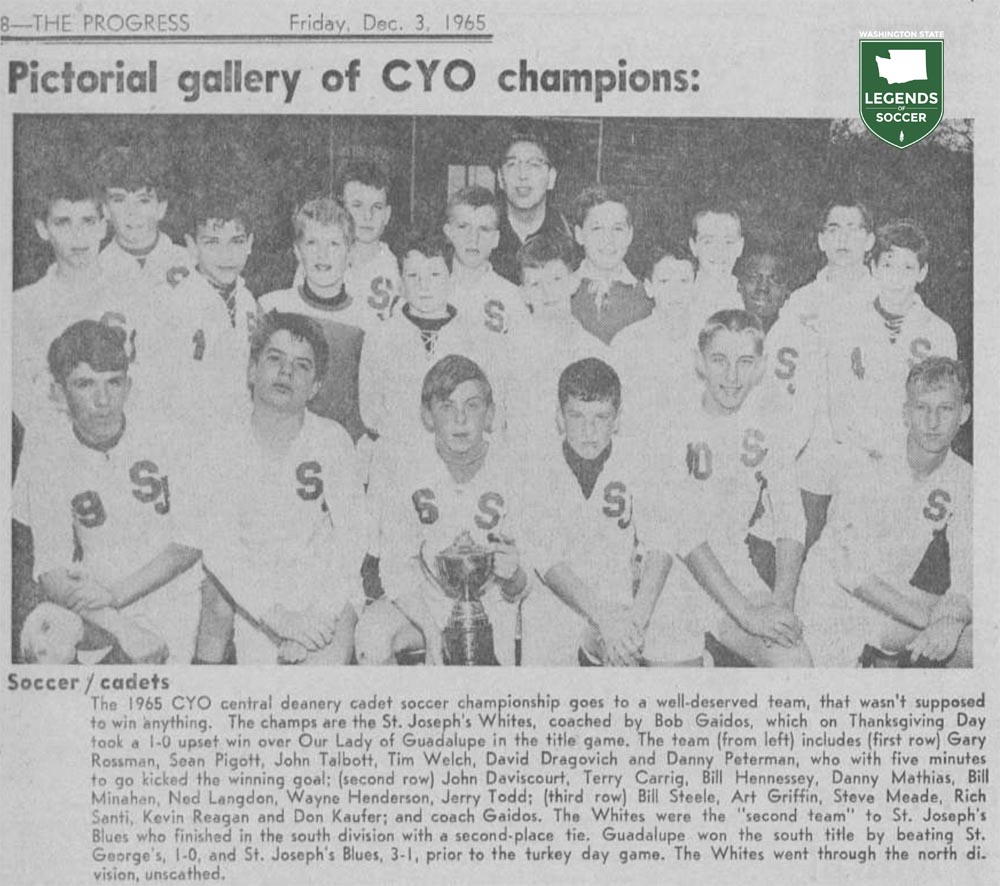1965 – Around the World and Close to Home
Two-time British Prime Minister Winston Churchill dies at 90. More U.S. combat troops begin fighting in Vietnam, numbering 190,000 by year end. Dr. Martin Luther King and more than 2,600 others are arrested in Selma, Ala., during peaceful demonstrations against voter-registration rules, and President Lyndon Johnson signs medicare into law. In Washington, Interstate 5 from Everett to Seattle is completed. Ivar Haglund begins Fourth of July fireworks over Elliott Bay. Known as the Seattle Rainiers since 1938, the city's PCL team is rebranded as the Angels.
The Challenge: Washington Joins the World
When the Northwest League endorsed formation of the U.S. Soccer Federation and then formally affiliated with the national governing body in 1914, Washington effectively became a member of world football. Yet for the next 50 years, the ties between the federation’s Manhattan headquarters and the state, located some 3,000 miles west, were tenuous at best.
Aside from updates on rules or the occasional check on the player’s registry, there was scarce interaction. There was the time a local national team candidate was encouraged to attend a tryout, only to learn that the squad had already been chosen. When Washington’s first two inductees to the National Soccer Hall of Fame were enshrined, proxies accepted on their behalf at ceremonies back east.
Finally, in 1964, a convergence of factors finally bridged the gap, from the Empire State Building to this seemingly wilderness outpost, and Washington’s soccer community took the first steps toward meaningful affiliation with the greater world. Each of those factors were rooted in what was happening in the Pacific Northwest’s largest city.
Postwar Seattle was bustling, about to break free of a perception that it was merely a provincial enclave. Boeing had diversified from to constructing military bombers to giving flight the 707 passenger jetliner. As the 1960s dawned, U.S. commercial air travel was taking off. Furthermore, Seattle’s Century 21 World’s Fair not only raised the collective consciousness of the state and Puget Sound, its ability to draw 9.5 million visitors instilled a newfound confidence in the inhabitants.
One of those Seattleites was a baker and confectioner who loved soccer and dreamt of his hometown club putting Washington soccer on the map. Balint Ducz, whose bakery supplied pastries to United Airlines, used some of that dough to create the Seattle Hungarians and lure his talented, refugee fellow countrymen to form the most entertaining and successful side the state had ever seen.
To prove that point, Ducz dug further into his pockets and made the Hungarians the first Pacific Northwest team to enter the National Challenge Cup. Until 1953, the forerunner of the U.S. Open Cup was far from national in scope no club from west of Missouri had seen, much less held the Dewar Cup. By 1958, however, a southern California club won it. Ducz, who had just founded his Hungarians, no doubt took notice.
Now, in the 1964-65 season, with widespread jet travel effectively fueling his passion project, Ducz paid some $3000 (adjusted for inflation to $27,000 in 2022) to twice take the Magyars to California for matches via charter flights. They reached the second round, and a year later advanced to the West finals.
As The Seattle Times stated, it was all worth it. “Balint Ducz’s wallet will be considerably thinner,” wrote Vince O’Keefe. “But if the Seattle Hungarians come through, Ducz will feel rewarded. It isn’t easy paying for these junkets, but the Hungarians are determined to put Seattle on the national soccer map – even if they have to live on Balint ‘s doughnuts and taffy.”
 1964
1964
